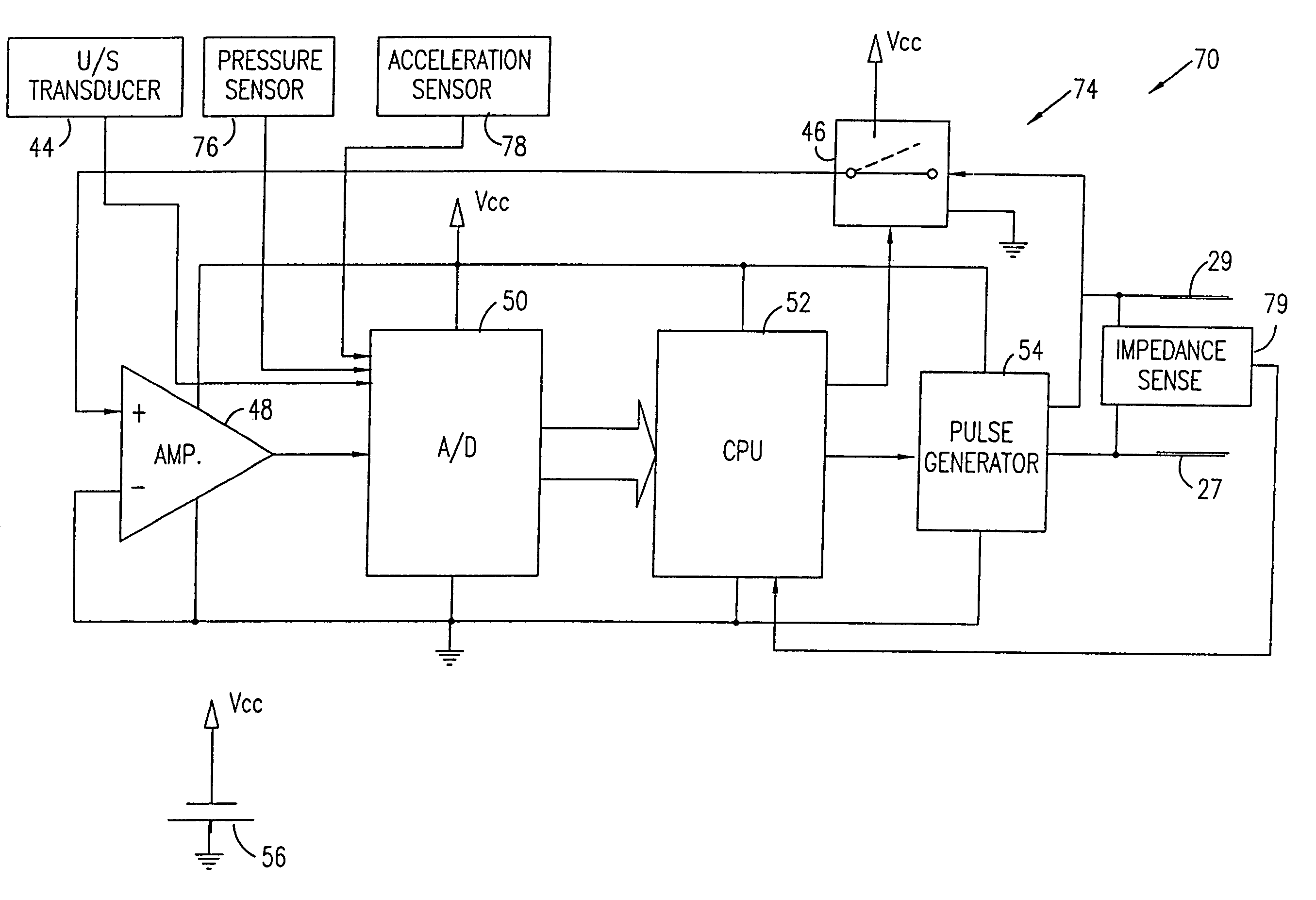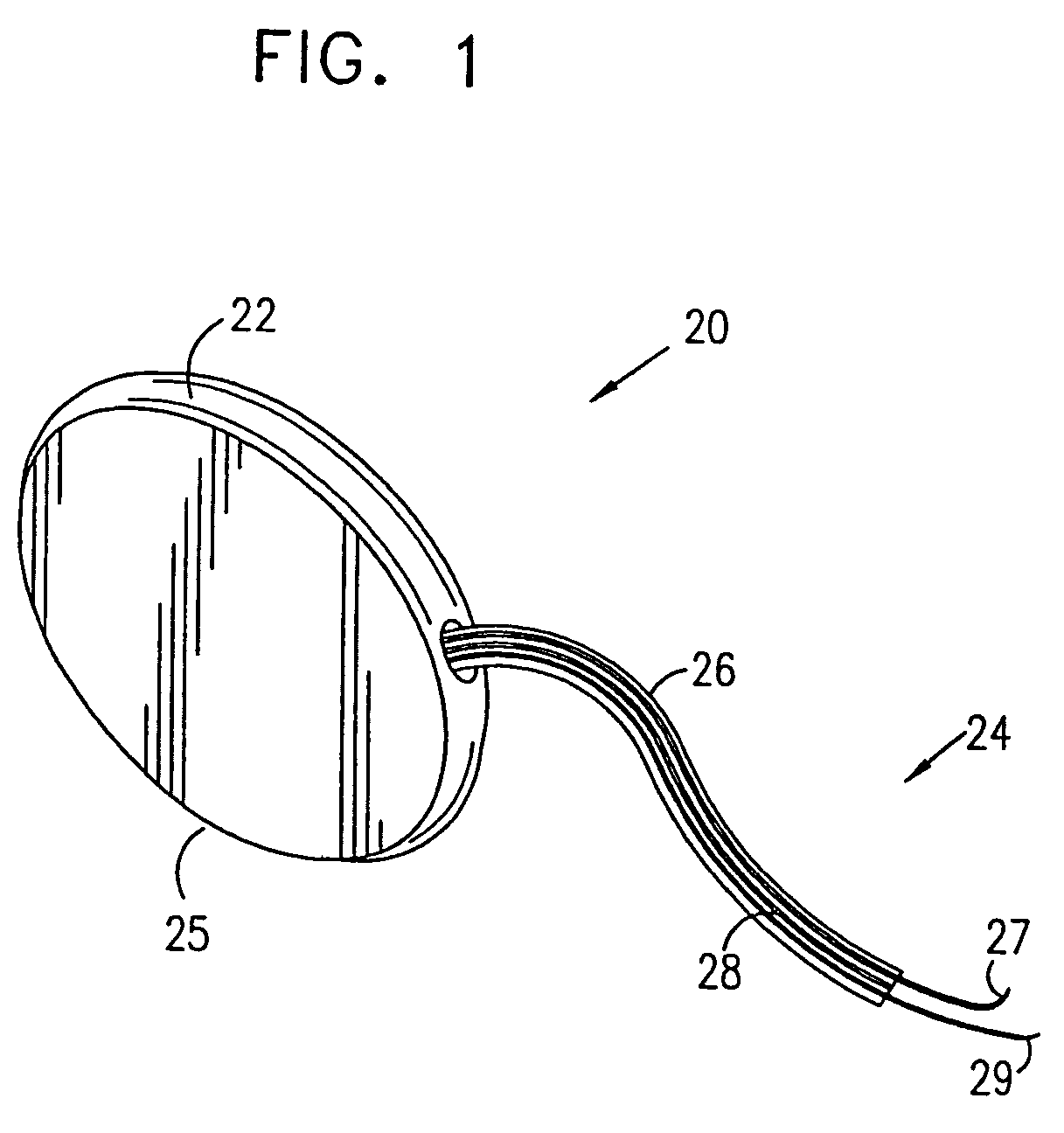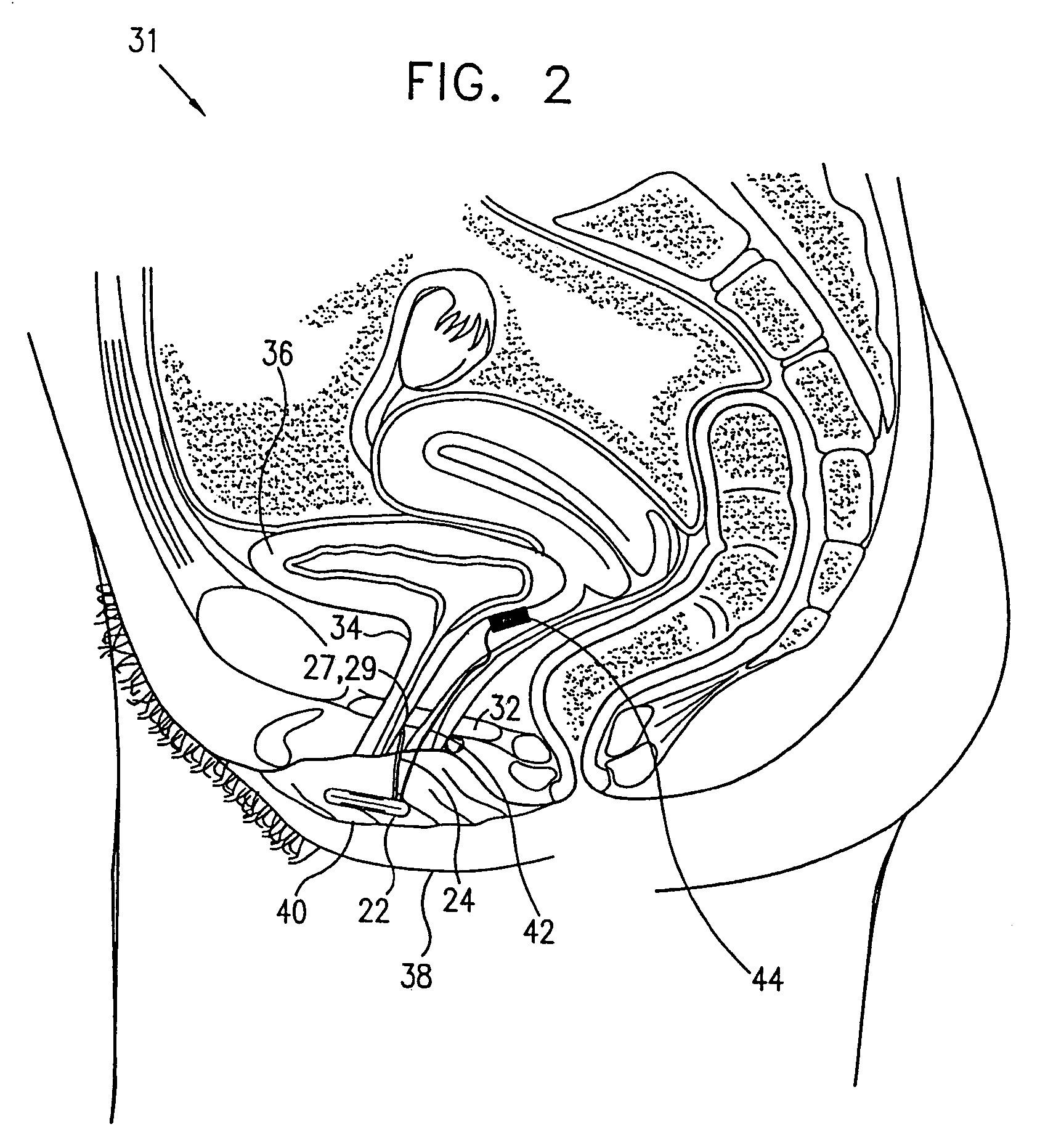Incontinence treatment device
a treatment device and incontinence technology, applied in the field of medical electronic devices, can solve the problems of stress incontinence, inability of pelvic muscles to hold back urinary flow from the bladder, discomfort and embarrassment, etc., and achieve the effect of inhibiting involuntary urine flow
- Summary
- Abstract
- Description
- Claims
- Application Information
AI Technical Summary
Benefits of technology
Problems solved by technology
Method used
Image
Examples
Embodiment Construction
I. Overview of Preferred Embodiments
[0088]A. General description of stimulator device
[0089]B. Sensing and control functions of the device
[0090]C. Signal processing
[0091]D. Power consumption control
II. Detailed Description of Figures
[0092]A. External elements of a stimulator device
[0093]B. Anatomical and surgical considerations
[0094]C. Signal processing[0095](i) hardware and algorithms[0096](ii) simulation of a typical EMG[0097](iii) experimentally measured EMG signals: distinguishing incontinence from voluntary voiding
[0098]D. Muscle stimulation
[0099]E. Provision of power to the control unit
[0100]F. External communication with the control unit
[0101]G. Utilization of other sensors
[0102]H. Reduction of power consumption
I. Overview of Preferred Embodiments
[0103]A. General Description of Stimulator Device
[0104]Various aspects of the present invention are described in this section (I) and in greater detail in the following section (II). As described with reference to the preferred embodi...
PUM
 Login to View More
Login to View More Abstract
Description
Claims
Application Information
 Login to View More
Login to View More - R&D
- Intellectual Property
- Life Sciences
- Materials
- Tech Scout
- Unparalleled Data Quality
- Higher Quality Content
- 60% Fewer Hallucinations
Browse by: Latest US Patents, China's latest patents, Technical Efficacy Thesaurus, Application Domain, Technology Topic, Popular Technical Reports.
© 2025 PatSnap. All rights reserved.Legal|Privacy policy|Modern Slavery Act Transparency Statement|Sitemap|About US| Contact US: help@patsnap.com



